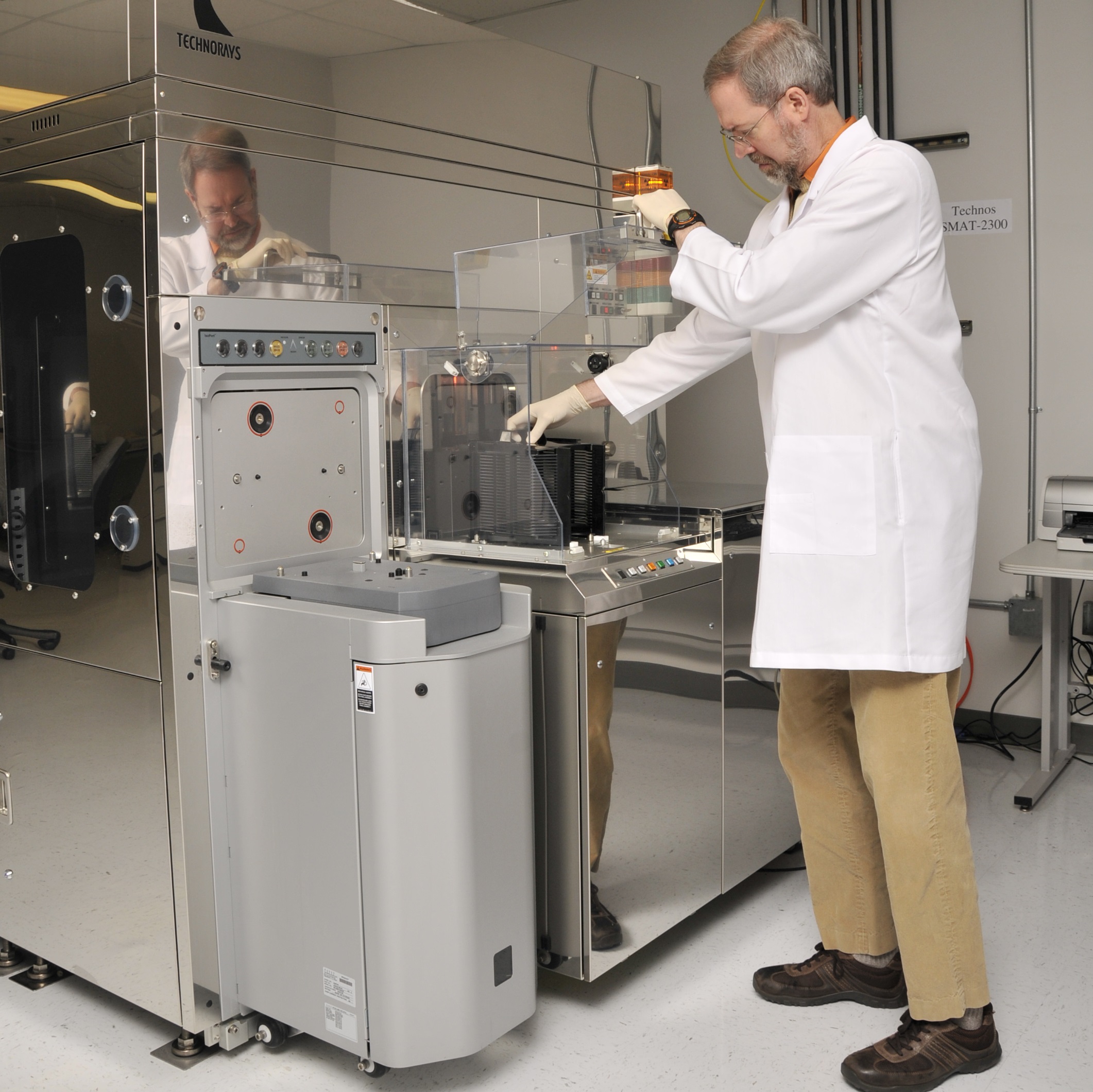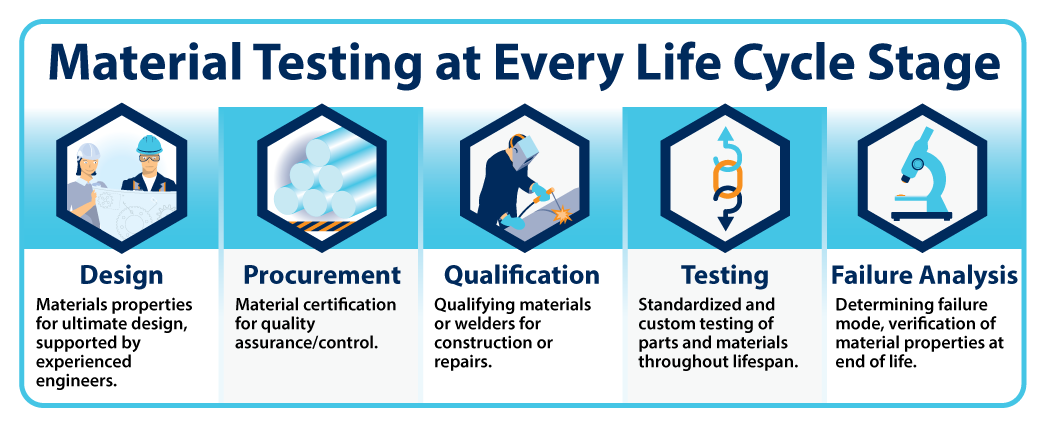Thorough Screening Solutions from a Leading Materials Test Lab
Wiki Article
Precision Testing of Materials for Stamina and Sturdiness
Precision testing of materials for strength and sturdiness plays an important duty in different sectors, consisting of engineering, manufacturing, and construction. This procedure includes subjecting different products to rigorous evaluations to establish their ability to hold up against external forces and maintain their stability gradually.On the planet of products screening, accuracy is paramount. Engineers and researchers depend on reputable and accurate data to make educated choices concerning product selection, design optimization, and product efficiency. By making use of innovative screening strategies and state-of-the-art equipment, professionals can assess the toughness and resilience of a large range of materials, such as metals, porcelains, composites, and polymers.
This introduction will certainly give understandings right into the relevance of accuracy testing, the kinds of products generally subjected to testing, the key criteria for toughness examination, and the strategies used for durability analysis. It will also highlight the applications and advantages of carrying out precision screening in different industries.
Importance of Accuracy Testing
Accuracy screening is a crucial step in evaluating the strength and toughness of products, giving trustworthy and exact data for informed decision-making. When it involves manufacturing and building markets, the high quality and efficiency of products play a vital role in making certain the security and long life of products and frameworks (materials test lab). Therefore, performing precision testing is of utmost relevance to establish whether the products meet the called for requirements and criteria.By subjecting materials to extensive screening producers, procedures and engineers can assess their mechanical properties, such as tensile stamina, firmness, and effect resistance. This info enables them to make sure that the products can hold up against applied pressures and ecological problems without failing or degradation in time. Furthermore, accuracy screening aids recognize any kind of possible issues or weak points in the products, allowing producers to make required improvements or modifications to enhance efficiency and integrity.
Moreover, precision testing gives measurable and unbiased information that can be utilized to compare different products and make informed decisions concerning their viability for certain applications. This info is specifically useful when selecting materials for critical elements or frameworks where failure can have serious repercussions.
Types of Products Subjected to Evaluating
Numerous materials undergo testing for toughness and longevity. This testing is crucial to make sure that the materials can hold up against the demands of their desired applications and to determine their expected life-span. The sorts of materials based on screening vary and consist of steels, polymers, ceramics, composites, and construction materials.Metals, such as steel and aluminum, are typically tested for their tensile toughness, hardness, and resistance to deterioration. materials test lab. These tests help establish their viability for usage in architectural applications, machinery, and numerous industrial processes

Ceramic products, such as porcelain and ceramic tiles, are examined for their compressive stamina, warm resistance, and resilience. These examinations make sure that ceramics can withstand high temperatures and rough settings, making them suitable for applications in the construction, electric, and aerospace industries.
Compounds, which are materials made from a mix of different components, undergo different examinations to examine their mechanical buildings, such as stamina, stiffness, and influence resistance. Compound materials are extensively made use of in sectors such as aerospace, automobile, and sports devices manufacturing.
Building materials, including concrete, timber, and asphalt, go through screening to establish their load-bearing ability, toughness, and resistance to weathering. These tests are vital in guaranteeing the safety and security and long life of roads, structures, and bridges.
Trick Criteria for Strength Assessment
One of the vital parameters for stamina evaluation is the tensile stamina, which gauges a material's capability to withstand drawing forces without flawing or damaging. Another crucial criterion is the compressive strength, go right here which assesses a product's resistance to squashing or being squeezed together. By examining these key parameters, engineers and scientists can accurately evaluate the toughness and resilience of products, allowing them to make educated decisions in numerous industries such as aerospace, automobile, building, and production.

Techniques for Longevity Evaluation
Toughness assessment methods are important for examining the long-lasting performance and dependability of products. These methods are vital in establishing the capability of products to withstand various environmental conditions and mechanical tensions over prolonged periods of time.An additional strategy is cyclic screening, which includes subjecting products to duplicated loading and dumping cycles. This aids review the material's fatigue resistance and its ability to stand up to repetitive stress and anxiety without failure. By examining the stress-strain action of the product throughout cyclic screening, scientists can recognize prospective weak factors and evaluate the product's toughness.
Additionally, non-destructive testing strategies such as ultrasonic screening and infrared thermography can be used to analyze the inner honesty and detect any kind of issues or damages in the product. These methods supply important info about the material's resilience without causing any kind of damages to it.
Applications and Advantages of Accuracy Screening
Accuracy testing plays an important function in examining the stamina and toughness of products, making it possible for designers and scientists to get precise and trustworthy information for examining their performance. The applications of accuracy screening are varied and can be discovered throughout different industries, consisting of aerospace, automobile, construction, and production.Among the essential benefits of accuracy testing is its capacity to determine potential weak points or problems in products. By subjecting products to strenuous and regulated testing, any defects or susceptabilities can be detected prior to they cause disastrous failures. This enables makers to make essential enhancements or changes to boost the overall quality and toughness of their items.
Accuracy testing additionally assists in determining the ideal design and make-up of materials. By evaluating various variations and arrangements, designers can determine the most ideal materials for specific applications. This causes improved efficiency, efficiency, and cost-effectiveness in various sectors.
Additionally, accuracy screening provides important information for the growth and renovation of materials and making procedures. materials test lab. It permits researchers to obtain a deeper understanding of material behavior under various conditions, bring about the important site development of new products with boosted toughness, performance, and toughness features
Final Thought
To conclude, precision testing plays a crucial duty in reviewing the stamina and toughness of products. By subjecting different sorts of materials to rigorous screening, crucial specifications for stamina assessment can be identified. In addition, methods for toughness evaluation provide valuable understandings into the performance and life-span of materials. This knowledge makes it possible for markets to make informed choices and makes certain the advancement of long-lasting and reliable items.Accuracy testing is a crucial step in evaluating the stamina and longevity of materials, providing trusted and accurate information for notified decision-making.Numerous materials are subjected to screening for toughness and sturdiness. The Read Full Report kinds of materials subjected to screening are varied and include metals, polymers, porcelains, compounds, and building products.
By analyzing the stress-strain action of the product throughout cyclic screening, researchers can identify potential weak points and examine the product's resilience.
In final thought, precision testing plays a crucial role in evaluating the strength and resilience of materials.
Report this wiki page